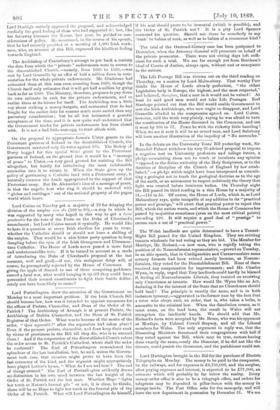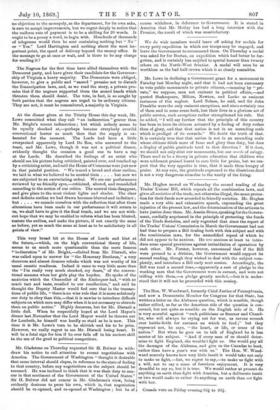Lord Hartington brought in the Bill for the purchase of
Electric Telegraphs on Monday. The money to be paid to the companies, to the railways, and for expenses is 16,750,000, and the surplus, after paying expenses and interest, is expected to be 177,000, an estimate which will probably be far below the reality. Every money-order office is also to be a telegraph office, and orders for telegrams may be deposited in pillar-boxes with the money in stamps inside. The Post Office asks for the monopoly, and will have the new department in possession by December 31. We see no objection to the monopoly, as the department, for its ow,n sake, is sure to accept improvements, but we regret deeply to notice that the uniform rate of payment is to be a shilling for 20 words. It -ought to be a penny a word, to begin with. Hundreds of thousands of telegrams would then be sent containing nothing but " No " or"Yes." Lord Hartington said nothing about the most im- portant point, the speed of delivery beyond the money office. Is the message to go at once or wait, and is there to be any charge for sending it?































 Previous page
Previous page